Pandemic viewing, Part One
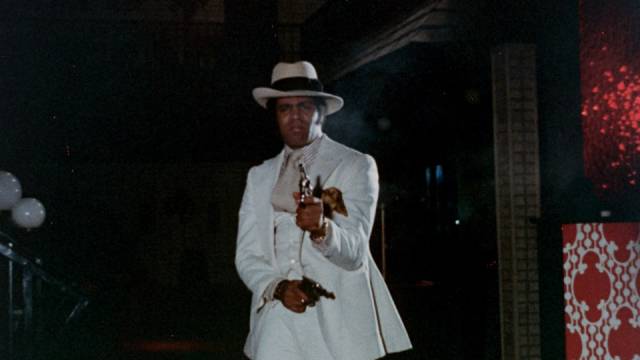
I’ve been “working from home” for over a month now, and while I’m really grateful to have a job which continues to pay me even though I’m not actually doing much work, the excessive amount of time spent alone has been making me kind of stir-crazy. At least the weather is finally getting warmer so it’s more comfortable getting out for some fresh air.
As for watching movies, even that sometimes loses its appeal … I may have to start reading books again. Actually, I did just re-read Nigel Kneale’s novel Quatermass, published in 1979 to go along with his final television serial about Britain’s pioneering rocket scientist. I dug it out after re-watching the four-part series on Blu-ray from Network. There’s no denying the final serial lacks the impact of the great BBC trilogy from the ’50s, but its bleak vision of an England collapsing into violent anarchy as some alien force begins “harvesting” the human race from deep space manages to retain the air of intelligence which set the original serials apart from most of the pulpy sci-fi available back then.
What I’ll do here is simply list, with a brief comment, what I’ve seen in the past four-to-six weeks which I haven’t mentioned yet. Looking at the substantial pile beside my desk, I have to wonder whether there isn’t something better to do with my time while the world collapses around me…
*
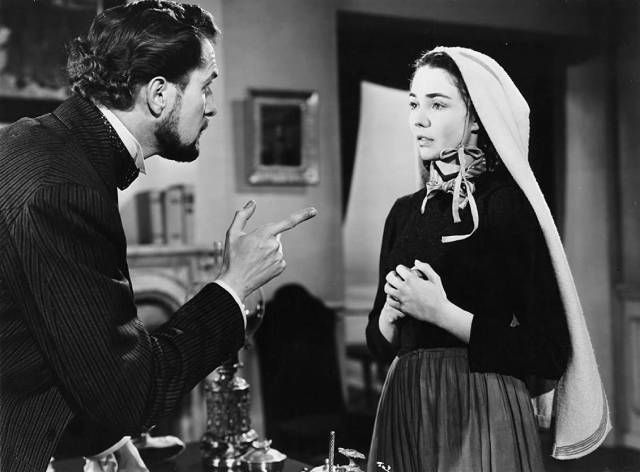
The Song of Bernadette (Henry King, 1943)
Henry King’s version of Franz Werfel’s novel about a French girl who had visions of the Virgin Mary in the mid-18th Century manages to avoid all the usual pitfalls of Hollywood sanctimony, and while it totally accepts the reality of Bernadette’s experiences (which made Lourdes a shrine and Bernadette herself a Saint), it’s surprising in its treatment of the civil and Church authorities who fought against her, trying to maintain their own monopoly on power. Why, they wonder, would God use a peasant girl to convey a message when He has the institution of the Church to let everyone know what his intentions are? Obviously He wouldn’t, so she must be lying and her lies, if believed by other peasants, threaten the whole structure of society. Jennifer Jones is remarkable in a completely unsentimental performance. (Eureka Blu-ray, with commentary)
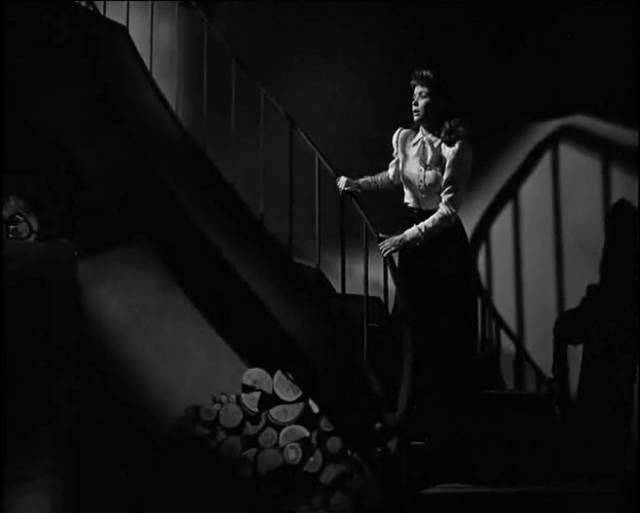
The Spiral Staircase (Robert Siodmak, 1946)
Robert Siodmak’s Gothic noir is loaded with atmosphere. A small New England town is struck by a series of murders whose victims all have some physical flaw, and it looks like a deaf-mute servant girl (Dorothy McGuire) may be next on the killer’s list. A good cast and excellent production values. (Kino Lorber BD, with commentary and radio adaptation)
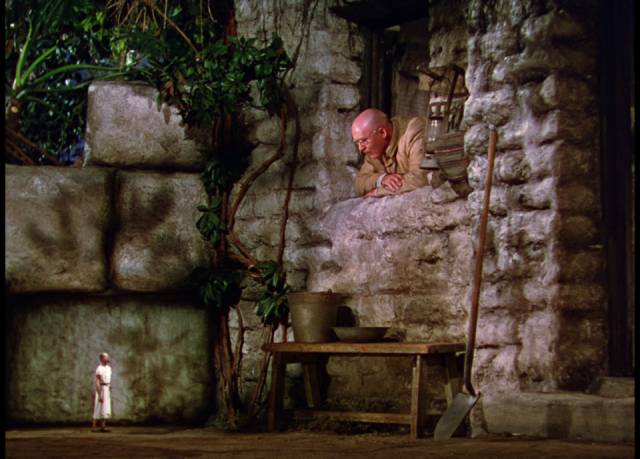
Doctor Cyclops (Ernest B. Schoedsack, 1940)
Although dramatically a pale shadow of King Kong and The Most Dangerous Game, Ernest B. Schoedsack’s mad-scientist-in-the-jungle story benefits from the excellent special effects which allow the sinister Dr. Thorkel (Albert Dekker) to shrink most of the cast down to about six inches. Another big plus is Henry Sharp’s sumptuous Technicolor photography. (Kino Lorber BD, with commentary)
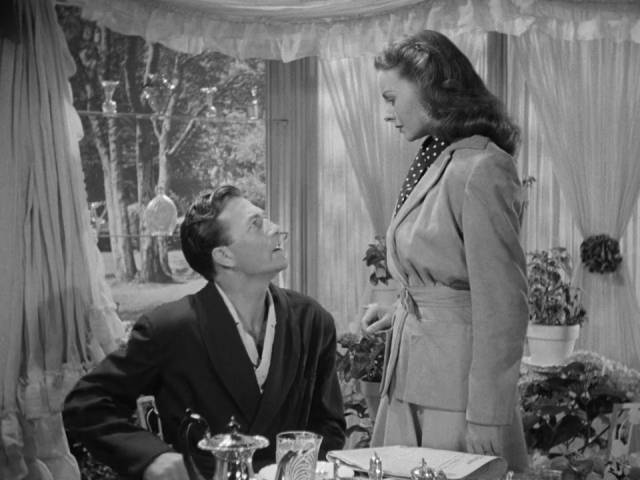
A Letter to Three Wives (Joseph L. Mankiewicz, 1949)
Having somehow managed to miss Joseph L. Mankiewicz’s multi-award-winning movie until now, I was surprised by how much I disliked it, considering my appreciation of many of his other films. Supposedly a comedy, it left me totally unamused by a bunch of characters who never cease to be annoying. (20th Century Fox BD, with commentary and documentary about star Linda Darnell)

One Million Years B.C. (Don Chaffey, 1966)
Although by definition cave-people-vs-dinosaurs fantasies are really dumb, this Ray Harryhausen movie didn’t seem as much fun to me as it used to. Maybe I just wasn’t in the right mood … and maybe my opinion could be restored if I ever get around to listening to Tim Lucas’ commentary. (Kino Lorber BD, with the Lucas’ commentary, two different cuts – I watched the longer British version – and several interviews)

Space Battleship Yamato (Takashi Yamazaki, 2010)
Enjoyable if not particularly memorable live-action version of a ‘70s anime series. With human survival threatened by mean aliens, an intrepid crew embark on a journey to a distant planet looking for the one thing that might save Earth. The scale is fairly epic, the tone a mix of juvenile adventure and “serious” philosophy, and the effects pretty good, with a number of big space battles. (Giant Ape Media BD, with a few short featurettes)
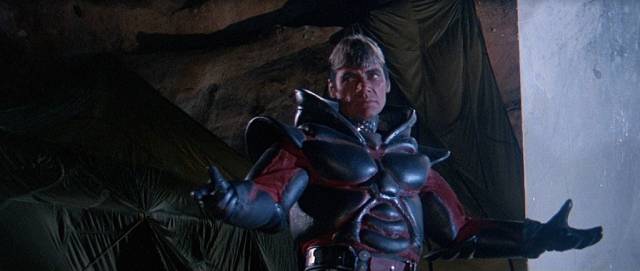
Metalstorm: The Destruction of Jared-Syn (Charles Band, 1983)
Charles Band followed up his gritty 3D sci-fi horror Parasite (1982) with something bigger – a mix of Star Wars and Mad Max, with a noble hero, a plucky heroine, and a murderous overlord deploying his henchmen to destroy all who oppose his fascist rule. It’s a mish-mash of story elements – with The Road Warrior’s Mike Preston as evil Jared-Syn here to remind you of a much better action movie – but the movie’s saving grace is Mac Ahlberg’s excellent 3D cinematography. (Shout! Factory BD, with both 2D and 3D versions, plus a lengthy retrospective doc)

The Last King (Nils Gaup, 2016)
A Norwegian historical epic set in the Middle Ages, with a group of rebels trying to protect a baby who’s the rightful heir to the throne from a murderous usurper; the royal conflict is complicated by the incursion of the Catholic Church into a pagan nation. The winter landscapes are spectacular, the action plentiful, the cast excellent – I knew nothing about this movie before watching it and it turned out to be terrific entertainment. (Magnolia BD, with an interview with one of the actors and a music video)
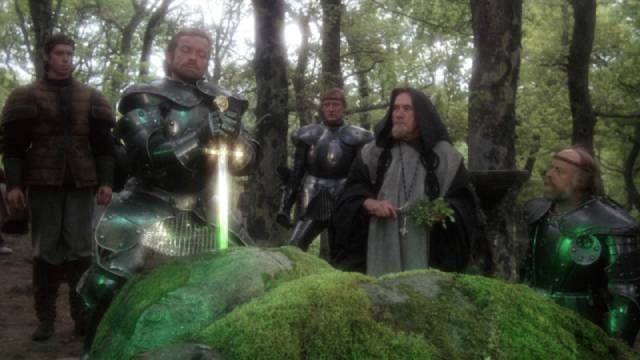
Excalibur (John Boorman, 1981)
More fantasy than history, John Boorman’s Medieval epic is often visually gorgeous as it breezes through the highlights of Arthurian legend. Noble intentions are constantly thwarted by human frailty and, at crucial moments, destructive egotism. The idea of a king as transcendent symbol binding the nation together was resoundingly debunked years earlier in Monty Python and the Holy Grail, and doesn’t really resonate from a modern perspective, but the film remains an engaging fantasy. (Warner BD, with director commentary)
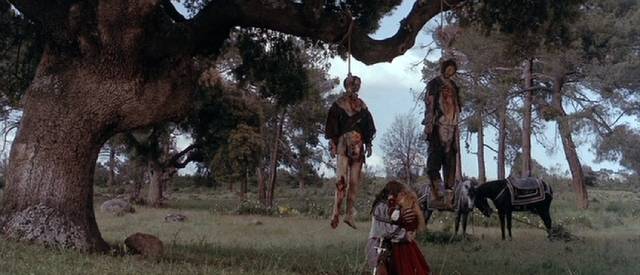
Flesh+Blood (Paul Verhoeven, 1985)
No matter how deep you dig, there’s not a trace of romance in Paul Verhoeven’s Medieval epic, a grim and ugly spectacle of plague, violence, rape and betrayal centred on a group of mercenaries used and discarded by a scummy nobleman, who set up their own small anarchist community. A noblewoman, destined to marry the betrayer’s son, is kidnapped and severely abused by the mercenary leader. The nasty misogyny running through the film can be interpreted as a critique of the limited possibilities faced by women at the time – in fact the young woman is the movie’s most interesting character, hard to pin down as she seems to submit to the brutality while simultaneously manipulating those who abuse her in order to survive. Rutger Hauer was uncomfortable in the lead role, Jennifer Jason Leigh pretty fearless as the kidnapped damsel, the cast a ragged mix of nationalities and styles … and the film itself shows Verhoeven struggling to expand beyond his impressive early Dutch career into a much bigger international scale with American financing. One of his least satisfying films, it marks his transition from the confines of the foreign-language “art cinema” of Spetters and The Fourth Man to the big-budget commercial success of RoboCop. (Eureka BD, with commentary, interviews and lengthy doc on Verhoeven’s career)
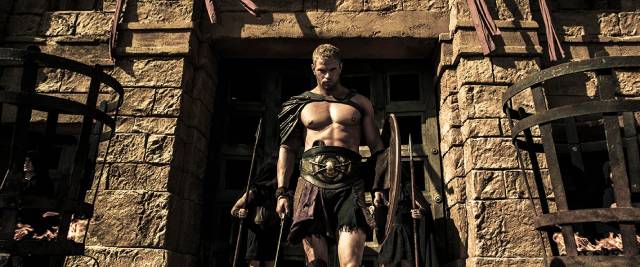
The Legend of Hercules 3D (Renny Harlin, 2013)
The failures of Flesh+Blood come from Verhoeven falling short of his ambition; Renny Harlin doesn’t stretch at all with this mediocre dip into Greek mythology. Son of a god, banished by his human stepfather, Hercules must harness his powers, come to terms with his identity, and overthrow the tyrant … all in the midst of an excess of large-scale CG action. I only watched it because it’s in 3D and I have a friend with the equipment – we’ll watch pretty much anything in the format! (eOne BD, with commentary and making-of featurette)

The Peanut Butter Solution (Michael Rubbo, 1985)
WTF? The first in a series of fables for kids from Quebec producer Rock Demers, written and directed by documentary filmmaker Michael Rubbo, this starts out like an ordinary kids film – boy misses his mother who’s been away a long time; boy sneaks into an abandoned house which has recently burned; boy sees something so scary that all his hair falls out … he tries a wig, but it’s torn off by a mean kid … boy is visited by ghosts of homeless people who died in the fire and given a magic recipe for hair restoration, but he fudges the mix and ends up with hair that won’t stop growing (his pre-pubescent buddy uses it on his crotch with distressing results). A sinister guy kidnaps kids to work in a factory where he harvests the boy’s hair to make expensive paint brushes … where the heck did all this come from? An after-school special goes to hell … reputedly traumatized a whole generation. A wonderful reminder of what’s possible outside the confines of homogenized corporate entertainment. (Severin BD, with commentary, several interviews … and two cuts of the movie)
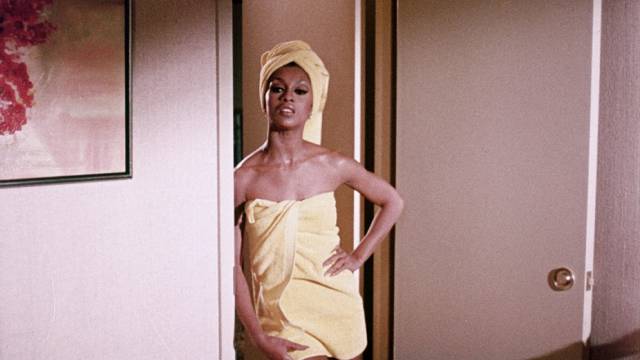
Lady Cocoa & The Candy Tangerine Man (Matt Cimber, 1975)
Two blaxploitation movies by Matt Cimber (the year before his masterpiece, The Witch Who Came From the Sea), one about a suburban dad who, unknown to his wife and kids, makes his living as a pimp; the other about a gangster’s girlfriend who agrees to testify against him so she get out of jail. Though she doesn’t intend to betray him, he doesn’t know that and sets up a hit … while she becomes involved with the cop assigned to protect her. In Candy the pimp rubs some gangsters the wrong way and finds himself in a turf war, much of which is waged on the bodies of the women he makes his living off. (Vinegar Syndrome dual format, with commentary on Lady Cocoa)
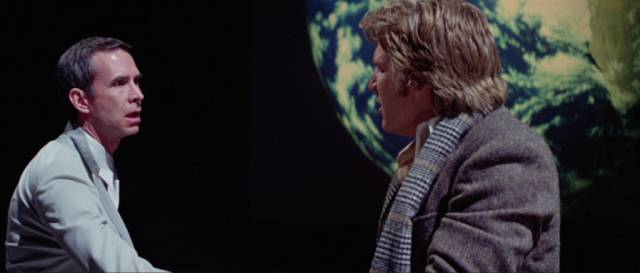
Winter Kills (William Richert, 1979)
Writer-director William Richert assembled an amazing cast although he had few resources – and they dried up during production – for this adaptation of William Condon’s paranoid thriller. He actually had to make another movie to raise funds to finish this, but all the problems he faced don’t show; it’s atmospherically shot by Vilmos Zsigmond and energetically performed by a huge cast headed by Jeff Bridges and John Huston. The assassination of a president eventually leads to a conspiracy rooted in business rather than politics – presciently pointing to the corruption of late stage Capitalism and the irrelevance of the superficial trappings of democracy to those who actually wield power. (Indicator BD, with two different cuts, director commentary and several featurettes on the production and the paranoid thriller genre)
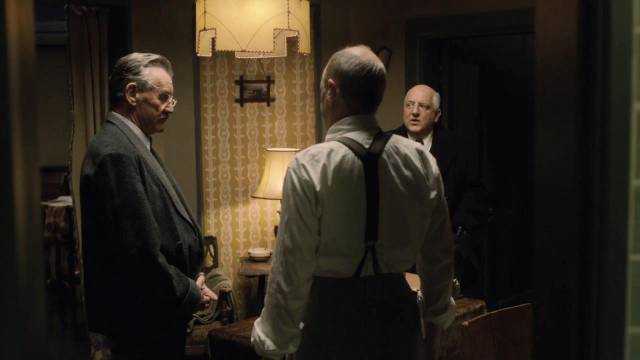
The Death of Stalin (Armando Iannucci, 2017)
For some reason, one of the best films of 2017 didn’t get much of a release on disk in North America … I ended up buying a copy of the region B Blu-ray from eOne Entertainment UK. I suspect that U.S. distributors shied away from it because of the presence of Jeffrey Tambor, who fell from grace with accusations of sexual misconduct around the time of the film’s theatrical release. But he’s just one small part of a brilliant work. Armando Iannucci’s blackly comic historical farce rewards multiple viewings because he brings his incisive understanding of the dark side of politics to the story of the inner members of the Politburo jockeying with one another for advantage in the hours after Stalin’s death in 1952. The trick is for the huge ensemble cast to reduce these monumental figures to human scale and thus show that their monstrous actions are rooted in us, not in allegorical figures who stand apart from us. (eOne Entertainment UK BD, with commentary, deleted scenes and multiple cast and crew interviews)
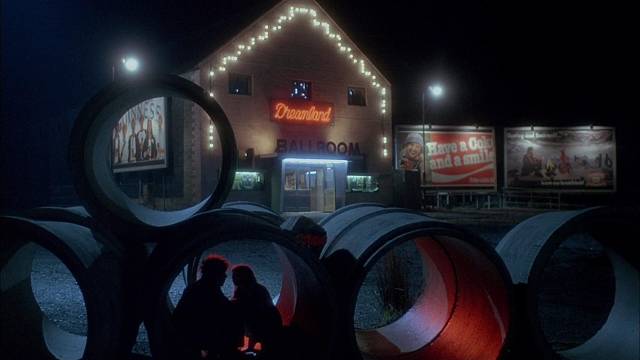
Angel (Neil Jordan, 1982)
I hadn’t seen Neil Jordan’s debut feature since its theatrical run in the early 1980s until I picked up a copy of Twilight Time’s Blu-ray. It holds up really well, prefiguring much of his subsequent (uneven) career in its story of a disengaged musician who witnesses a brutal murder which claims a simple-minded girl as a collateral victim. Incensed by this violation of innocence and plagued by guilt for having watched without intervening, he sets about tracking down the members of the gang and bringing down God’s vengeance on them one by one. Guilt is a common theme in Jordan’s work and Stephen Rea is its ideal vessel here – Rea became something of an alter ego for Jordan, appearing in ten of the director’s films. Here, Jordan translates his literary voice effortlessly to visual storytelling. (Twilight Time BD, no extrras)

Over Your Dead Body (Takashi Miike, 2014)
The prolific Takashi Miike channels classic Japanese cinema – and older theatrical traditions – in this intense, visually stunning retelling of the ghost story of Yotsuya, a 19th Century kabuki play previously filmed many times. Here the play is being staged in a modern version on an elaborate revolving set. The famous leading actress manages to get her less well known lover the male lead – a samurai who murders his supportive wife and child in order to get ahead by marrying his master’s daughter. As the play takes shape through rehearsals, the performers begin to reiterate the drama in real life. At times, thanks to the production design, the film becomes a full-blown period drama, adding layers of meaning and emotion to the conflicts among the performers, blurring the line between life and art in tragic ways. (Shout! Factory BD, no extras)
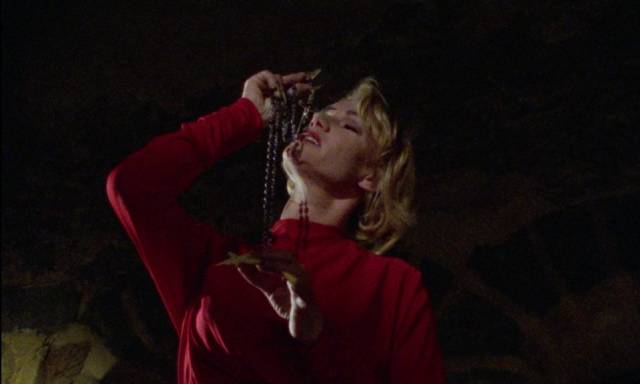
La fiancee de Dracula (Jean Rollin, 2002)
One of Jean Rollin’s last films, Dracula’s Fiancee somehow doesn’t seem to get much respect (or notice), yet it reflects many of his best qualities … but perhaps some people see that as him repeating himself later in life (though for a director who obsessively revisited the same themes, locations and even storylines throughout his career, that would seem an odd criticism). A professor and his protege search through a twilight world looking for the king of vampires. Their investigation leads to a madwoman imprisoned by an order of nuns, who may or may not be on the side of light. The prisoner has been destined from birth to become Dracula’s bride. Clocks figure prominently as a means to travel between worlds, and everything eventually leads to Rollin’s beloved beach near Dieppe. Redemption/Kino Lorber have paired the film on a disk with Lost in New York, a dreamlike short feature blending childhood fantasy, memory, aging and mortality in which two girls are transported through storytelling to New York, where they lose each other and encounter various mystical figures in their quest to find each other again. (Redemption/Kino Lorber BD, with a commentary on Dracula’s Fiancee)
To be continued…
Comments